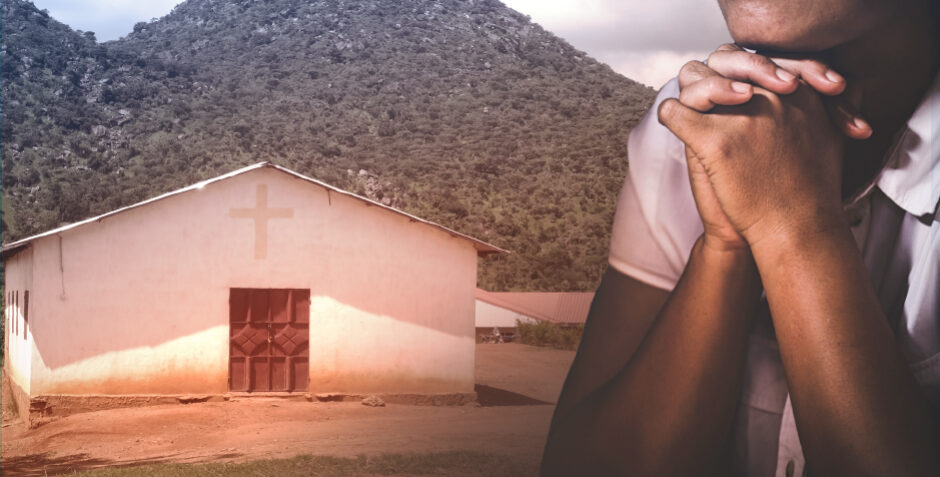ACLJ Partners With World Orgs. To Defend Persecuted Christians
The ACLJ is constantly working to further religious freedom for Christians across the globe. Part of that work includes establishing relationships with key stakeholders in the international community. For example, we are members of the Business Council for International Understanding (BCIU), a group dedicated to strengthening the relationships between businesses, governments, organizations, and institutions. We attend events to look for opportunities for the ACLJ to take action.
Recently, we met with Ms. Afreen Akhter, Deputy Assistant Secretary in the Bureau of South and Central Asian Affairs at the U.S. Department of State, for a roundtable discussion on current affairs in Bangladesh. We exchanged ideas between the government and the private sector regarding issues of foreign policy, business investments, humanitarian assistance, and how they relate to each other in strengthening human rights. A big part of the discussion was how to bring developing countries into compliance with international human rights norms. In our discourse, we noted the importance of Western governments’ engagement in developing countries to aid in protecting individual fundamental liberties.
Religious minorities, especially Christians, face severe persecution in many parts of the world. The U.S. government has the ability – and even a responsibility – to help countries improve their human rights situations. One way of bringing countries into compliance with international human rights norms is requiring them to improve their domestic laws to comply with international standards in order to receive government funding. Furthering the ACLJ’s relationships with the private sector and organizations like BCIU and encouraging their engagement on human rights issues will bring us one step closer to religious freedom in these countries.
Many countries have ratified international human rights treaties, such as the International Covenant on Civil and Political Rights (ICCPR) or the Convention on the Rights of the Child (CRC). Most countries also agree to the principles enshrined in the Universal Declaration of Human Rights (UDHR). However, countries with a high volume of persecution do not have strong protections in their domestic laws. Even when they do, they don’t have good enforcement policies and practices, so they are often in breach of their international commitments. Foreign policies and investments are ways Western countries and big businesses can make a significant impact in such countries.
As you know, the ACLJ defends human rights and fundamental freedoms around the world. So our participation in conferences like this can be very impactful because human rights, business, development, and Western governments’ foreign policies and interactions connect strongly with countries that have less emphasis on human rights.
For instance, Ms. Akhter shared how the State Department is engaged in Bangladesh by helping improve its labor laws, regulatory policies, and human rights. There is a clear need for such policies, and the U.S. government has thankfully made some progress in this arena. Looking forward, Bangladesh will likely be incentivized to provide more rights to workers because it could lead to more aid and private-sector investment in the country. Considering that China already provides massive funding to developing countries to further their own investments and projects, without regard for human rights, it is important that the U.S. fully engage in countering their influence and protecting human rights.
As the ACLJ continues to build relationships with BCIU members, we highlight our work representing persecuted Christians around the world. For instance, in Pakistan, we have an affiliate office that provides legal representation to dozens of persecuted Christians every year. While we do not have a physical presence in Bangladesh, we do file reports at the U.N. that involve Christian persecution in Bangladesh. As part of our international practice, we routinely submit reports to various bodies at the U.N. regarding religious freedom and other fundamental rights, including pro-life issues, human trafficking, child labor, bonded labor, etc.
For the U.N.’s Universal Periodic Review (UPR), Bangladesh is up for review in the current session. We have submitted a UPR report on the situation of human rights in Bangladesh, detailing instances of growing persecution of Christians by the Muslim majority and even by Buddhist and Hindu extremists. The report will be filed soon and will be available on our website as soon as it is filed.
The U.S. government and civil society organizations must continue to engage in the interaction between foreign policy, business, and human rights. It is imperative that governments and businesses insist that countries with bad human rights records improve their laws to protect their religious minorities in order to receive monetary aid and for businesses to invest money.
As we expand our efforts in helping our Christian brothers and sisters around the world, the ACLJ continues to establish important relationships with key stakeholders in the international community. The ACLJ will continue to participate in such endeavors, have meaningful conversations with important individuals, provide legal assistance, and be a voice for the voiceless at the U.N. and other international forums.
